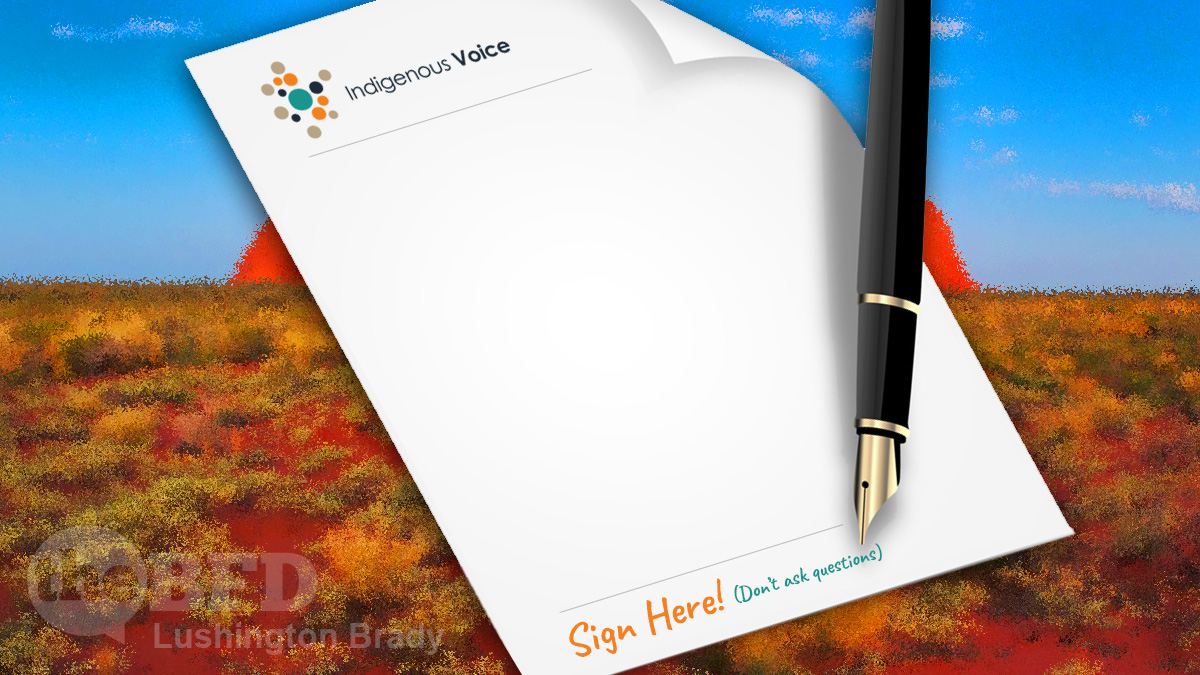Back in 2015, One Nation politician and former Labor leader Mark Latham characterised Bill Shorten as a “flim-flam” leader, “passionately dedicated to symbolism”. “Hold my shandy,” says Anthony Albanese.
Anthony Albanese has spoken ahead of the 47th parliament being opened to declare that Australia must seize the “opportunity” offered by the Uluru Statement from the Heart and advance reconciliation.
Speaking in the Great Hall at Parliament House, the Prime Minister argued that it was simply “good manners” for Australia to proceed with an indigenous voice to parliament and compared it to a hand being offered out towards First Nations people.
“That’s all people are asking for,” he said.
The Australian
Except that it’s not. Has Albanese even read the Uluru Statement? Because if he has, and if he understood it (a dubious proposition), he’d know that it’s asking for very, very much more than a “hand”.
It’s literally demanding a separate Aboriginal nation.
Alarmist rhetoric? No, just reading the statement with a critical understanding.
The statement talks about “sovereignty” a lot: it mentions it five times. It avers that Aboriginal sovereignty “has never been ceded or extinguished, and co-exists with the sovereignty of the Crown”.
Now, this may sound like just so much high-falutin’ rhetoric — until you consider what “sovereignty” actually means, in international law.
Sovereignty is the sole, supreme and indivisible law-making authority over a defined territory.
Sovereignty cannot be shared, it cannot “co-exist” in the same territory. Either the Crown is the sovereign of all of Australia, or it is not sovereign of parts or all of it. If the Crown is not sovereign, then the real sovereign — in this case, “Aboriginal sovereignty” — is the supreme law-making authority.
This is not just academic pettifogging. This is the Constitution we’re talking about: where words dictate the supreme law of the land. If “Aboriginal sovereignty” is written into the Constitution, then it rules Australia.
As we are seeing, New Zealand’s democracy is being upended simply on the basis of a dubious claim, “partnership”, about the Treaty of Waitangi (which also clearly refers to “sovereignty”).
This is no mere slip of the pen, or flowery language, either. The drafters of the Uluru Statement included constitutional lawyers. They had to know what their words meant.
The Uluru Statement is a blueprint for an Aboriginal ethnostate encompassing either part or all of Australia.
Now, no one’s ever accused Albo of being the sharpest tool in the shed, but even if he’s too dense to know what he’s talking about, the people pulling the “Voice” strings aren’t. They are explicitly pushing a blueprint for an ethnostate — and many Australians are awake to it.
No wonder they’re worried.
The Indigenous voice to parliament is at its most vulnerable. The next two months will seal its fate. I say this as a resolute supporter, now and from its inception.
And I say, as a resolute opponent of an ethnostate in Australia, of apartheid, and of injecting race into the Constitution… Good.
Even “resolute supporters” admit that the whole proposal is flawed and dangerous.
Why would any sane person vote for a proposal whose exact details they were not allowed to see? It would be like buying a house without the price, the address or the number of rooms […]
How is the voice chosen? Elected or appointed? Who is eligible to serve? What legislation is scrutinised? Is executive action examined? What are the grounds of scrutiny? What are its powers? How is it funded? How is it resourced?
These are reasonable questions, demanding reasonable, honest, detailed answers.
The Australian
And we’ve got no answer to any of them. Just “vote Yes and trust us”.
How does “get stuffed” sound for an answer?

